第67章 IS CONGRESS THE PRESIDENT'S MASTER?(1)
The period of Lincoln's last eclipse is a period of relative silence.But his mind was not inactive.He did not cease thinking upon the deep theoretical distinctions that were separating him by a steadily widening chasm from the most powerful faction in Congress.In fact,his mental powers were,if anything,more keen than ever before.Probably,it was the very clearness of the mental vision that enfeebled him when it came to action.He saw his difficulties with such crushing certainty.During this trying period there is in him something of Hamlet.
The reaction to his ideas,to what is either expressed or implied,in the first and second messages,was prompt to appear.The Jacobins did not confine their activities within the scope of the terrible Committee.Wade and Chandler worked assiduously undermining his strength in Congress.Trumbull,though always less extreme than they,was still the victim of his delusion that Lincoln was a poor creature,that the only way to save the country was to go along with those grim men of strength who dominated the Committee.In January,a formidable addition appeared in the ranks of Lincoln's opponents.Thaddeus Stevens made a speech in the House that marks a chapter.It brought to a head a cloud of floating opposition and dearly defined an issue involving the central proposition in Lincoln's theory of the government.The Constitution of the United States,in its detailed provisions,is designed chiefly to meet the exigencies of peace.With regard to the abnormal conditions of war,it is relatively silent.Certain "war powers"are recognized but not clearly defined;nor is it made perfectly plain what branch of the government possesses them.The machinery for their execution is assumed but not described--as when the Constitution provides that the privileges of the writ of habeas corpus are to be suspended only in time of war,but does not specify by whom,or in what way,the suspension is to be effected.Are those undefined "war powers,"which are the most sovereign functions of our government,vested in Congress or in the President?
Lincoln,from the moment he defined his policy,held tenaciously to the theory that all these extraordinary powers are vested in the President.By implication,at least,this idea is in the first message.Throughout the latter part of 1861,he put the theory into practice.Whatever seemed to him necessary in a state of war,he did,even to the arresting of suspected persons,refusing them the privilege -of the habeas corpus,and retaining them in prison without trial.During 1861,he left the exercise of this sovereign authority to the discretion of the two Secretaries of War and of State.
Naturally,the Abolitionists,the Jacobins,the Democratic machine,conscientious believers in the congressional theory of the government,every one who for any reason,wanted to hit the Administration,united in a chorus of wrath over arbitrary arrests.The greatest orator of the time,Wendell Phillips,the final voice of Abolition,flayed the government in public speeches for reducing America to an absolute despotism.
Trumbull introduced into the Senate a resolution calling upon the President for a statement of the facts as to what he had actually done.[1]
But the subject of arrests was but the prelude to the play.
The real issue was the theory of the government.Where in last analysis does the Constitution place the ultimate powers of sovereignty,the war powers?In Congress or in the President?
Therefore,in concrete terms,is Congress the President's master,or is it only one branch of the government with a definite but united activity of its own,without that sweeping sovereign authority which in course of time has been acquired by its parent body,the Parliament of Great Britain?
On this point Lincoln never wavered.From first to last,he was determined not to admit that Congress had the powers of Parliament.No sooner had the politicians made out this attitude than their attack on it began.It did not cease until Lincoln's death.It added a second constitutional question to the issues of the war.Not only the issue whether a State had a right to secede,but also the issue of the President's possession of the war powers of the Constitution.Time and again the leaders of disaffection in his own party,to say nothing of the violent Democrats,exhausted their rhetoric denouncing Lincoln's position.They did not deny themselves the delights of the sneer.Senator Grimes spoke of a call on the President as an attempt "to approach the footstool of power enthroned at the other end of the Avenue."[2]Wade expanded the idea:"We ought to have a committee to wait on him whenever we send him a bill,to know what his royal pleasure is with regard to it....We are told that some gentlemen ...have been to see the President.Some gentlemen are very fortunate in that respect.
Nobody can see him,it seems,except some privileged gentlemen who are charged with his constitutional conscience."[3]As Lincoln kept his doors open to all the world,as no one came and went with greater freedom than the Chairman of the Committee,the sneer was-what one might expect of the Committee.Sumner said:"I claim for Congress all that belongs to any government in the exercise of the rights of war."Disagreement with him,he treated with unspeakable disdain:
"Born in ignorance and pernicious in consequence,it ought to be received with hissings of contempt,and just in proportion as it obtains acceptance,with execration."[4]Henry Wilson declared that,come what might,the policy of the Administration would be shaped by the two Houses."I had rather give a policy to the President of the United States than take a policy from the President of the United States."[5]
Trumbull thundered against the President's theory as the last word in despotism.[6]